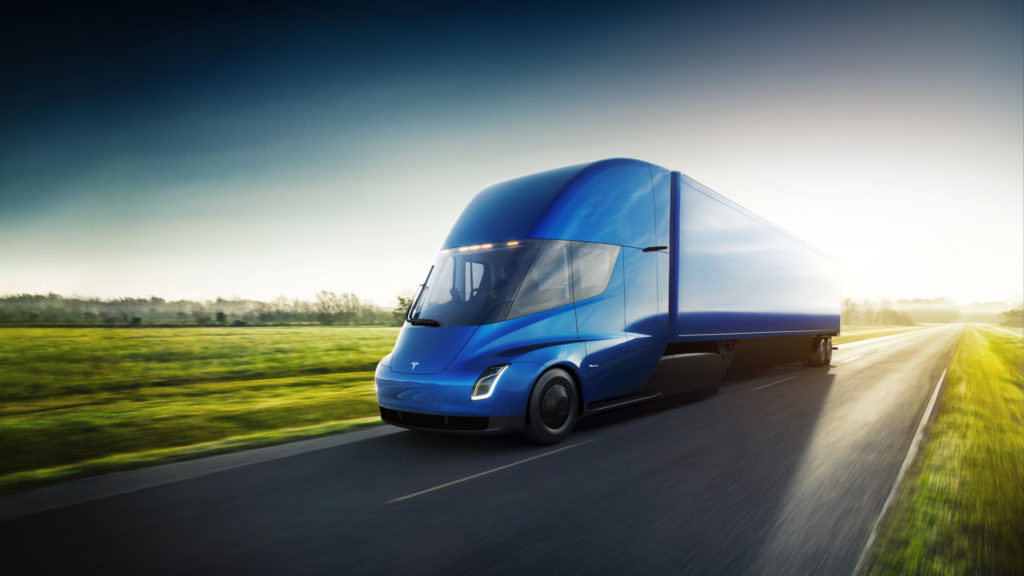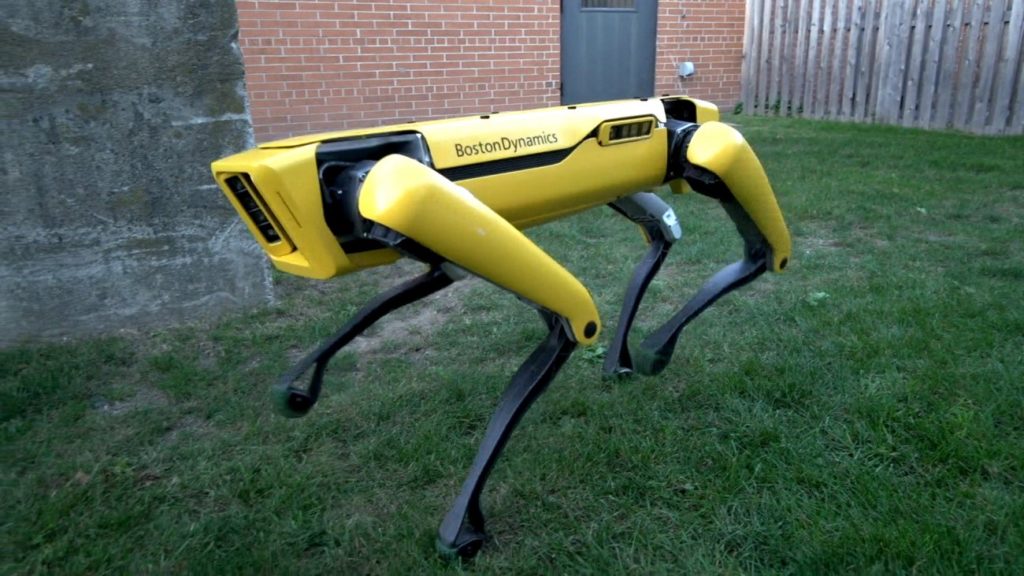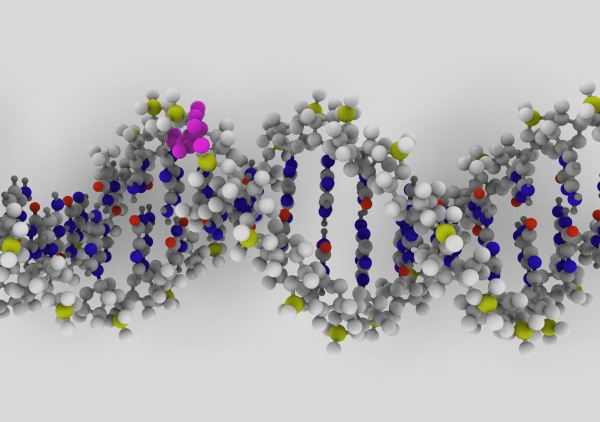DNA | Photo: Flickr user ynse (modified), CC BY-SA 2.0
This week we’ve got a story about editing genes in a living, breathing human, the new semi-trailer truck announced by Tesla, and videos of the new Boston Dynamics robots. It’s the science and technology news roundup for Sunday, November 19, 2017.
In Vivo Gene Editing
News broke this week that for the first time scientists have used gene editing techniques to edit DNA in vivo—in a living human. Doctors at California-based Sangamo Therapeutics began a trial in which a pre-CRISPR editing technique using Zinc Finger Nucleases (ZFR) was used to target and insert code into the DNA of living cells in the livers of their patients. The idea is to teach the patient’s body, which currently can’t produce a pretty important digestive enzyme that lets you break down carbohydrates, to make that missing enzyme. This is a huge deal, especially if it works. I have my doubts about whether it really is the very first time gene editing has been done in vivo in a human—we’ve been using viruses to put missing genes into human cells for a while—but either way, this is pretty cool because the ZFR technique allows for a much more accurate targeting of the right spot in the faulty DNA than previous methods. CRISPR may yet further improve that targeting, as well, so even if this particular trial doesn’t work, there’ll be other attempts coming down the pipeline that will make the cure of genetic diseases more and more commonplace. And that’s incredibly cool. You can read more about it in AAAS Science Magazine.

Tesla Trucking
This week Elon Musk presided over an event that saw the announcement of Tesla’s future contribution to the shipping industry: a class-8 equivalent semi-trailer truck. It can supposedly go 500 miles on a full charge at full weight, 400 on a half-hour’s charge with a Tesla supercharger, and can get up to 60 mph in 20 seconds when loaded down at the maximum US highway weight of 80,000 lbs. That sounds pretty good to non-truckers, but a typical class-8 diesel can easily go 1400 miles on a single tank, and the admittedly improved acceleration isn’t top of the desirables list. What’s more interesting is the semi-autonomous technology built in, which should not insignificantly improve highway safety, as the majority of crashes involving these kinda of vehicles are due to driver error (often due to exhaustion). The increase in automated awareness should pair well with trained drivers to prevent those (still quite rare, statistically) incidents caused by the overworking of drivers. Whether Tesla can make the price point work for fleet owners remains to be seen, but if it can, then we may start seeing these on the roads in 2020. The Canadian grocery chain Loblaws has committed to purchasing 25 of the trucks, and Walmart and JB Hunt have also committed to purchases, which in theory will be on the road in 2019 (but more likely 2020). You can read more on the story over at The Verge.

Boston Dynamics Has New Robots
I… I don’t have anything to add to this headline, except Boston Dynamics has a robot that does backflips now, and its terrifying robot dog has had offspring with an early 2000s iMac. So, yeah. Here.
Best of the Rest
It’s nearly five, it’s rainy and dark and I’m tired and overworked, so here’s a list of things I haven’t written about this week:
- We might get to have tasty bananas that are fungus resistant if we’re not too anti-science to handle it
- We might also get more bad earthquakes this coming year because of tiny natural variances in the speed of the Earth’s rotation
- Ajit Pai’s FCC has once again proven just how pro-monopolies it is
- A study suggests that some people who can’t have gluten might find that fructan is responsible, instead
- Lava lamps are good for generating random numbers, which is good for internet security, and
- If you ever needed a reminder of how crap public transit is in the US, a Japanese train line just issued an apology for leaving a 20 seconds too early
That’s all for today, folks. Have a great week.
***
Thanks again for reading. Except for the very *very* occasional tip, we only get paid in my own (and your) enthusiasm, so please like This Week In Tomorrow on Facebook, follow us on Twitter @TWITomorrow, and tell your friends about the site!
If you like our posts and want to support our site, please share it with others, on Facebook, Twitter, Reddit — anywhere you think people might want to read what we’ve written. If there’s something you think we’ve missed or a story you’d like to see covered, drop us a line! Thanks so much for reading, and have a great week.
***
Richard Ford Burley is a human, YA author, and doctoral candidate at Boston College, as well as Deputy Managing Editor at Ledger, the first academic journal devoted to Bitcoin and other cryptocurrencies. In his spare time he writes about science, skepticism, feminism, and futurism here at This Week In Tomorrow.

